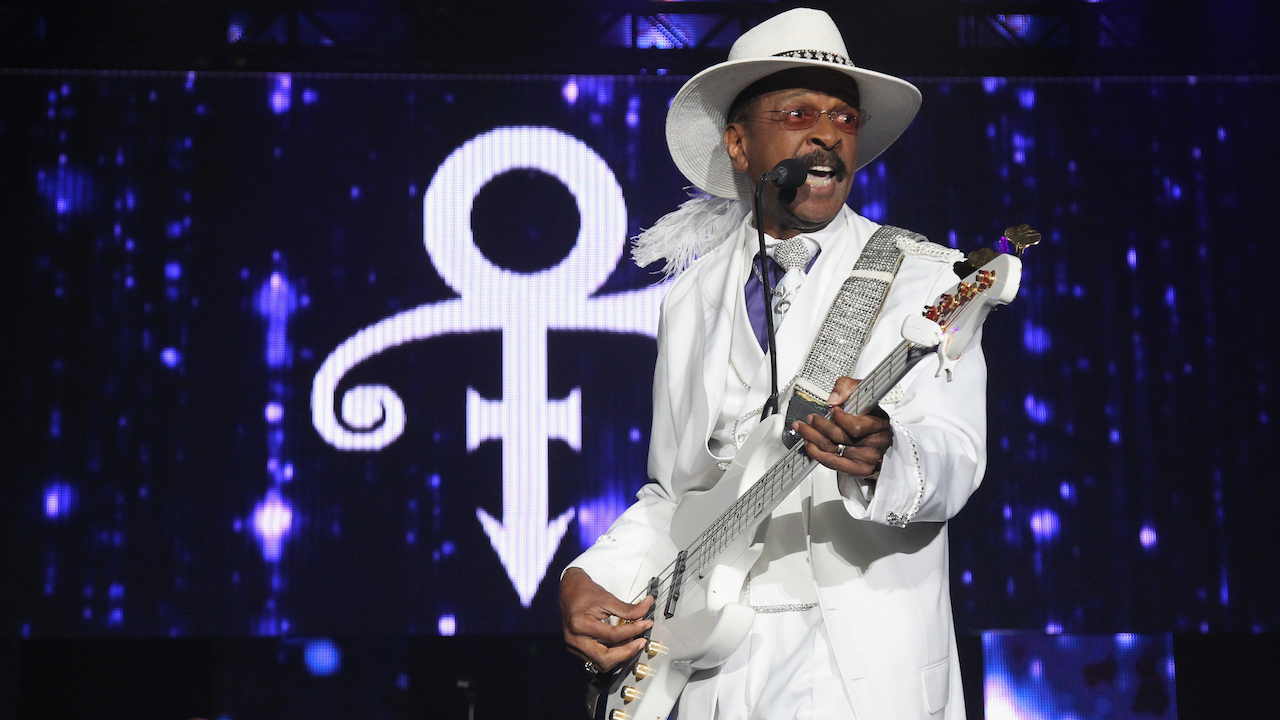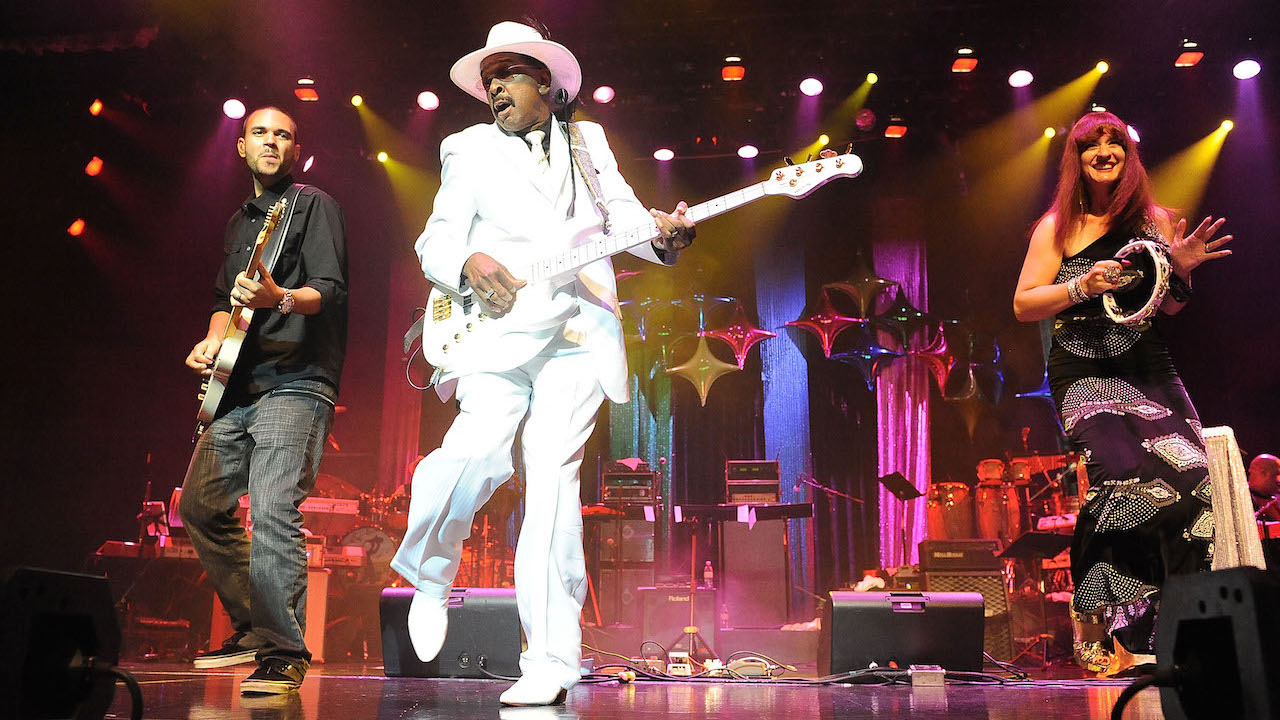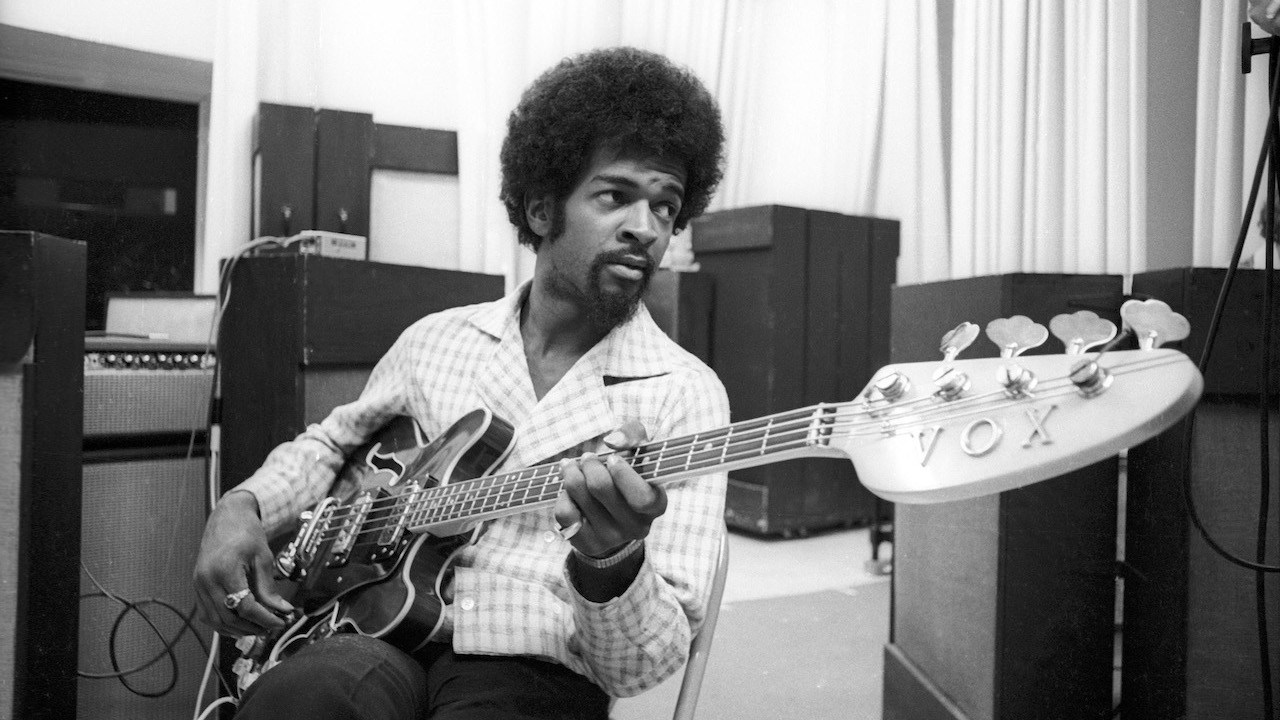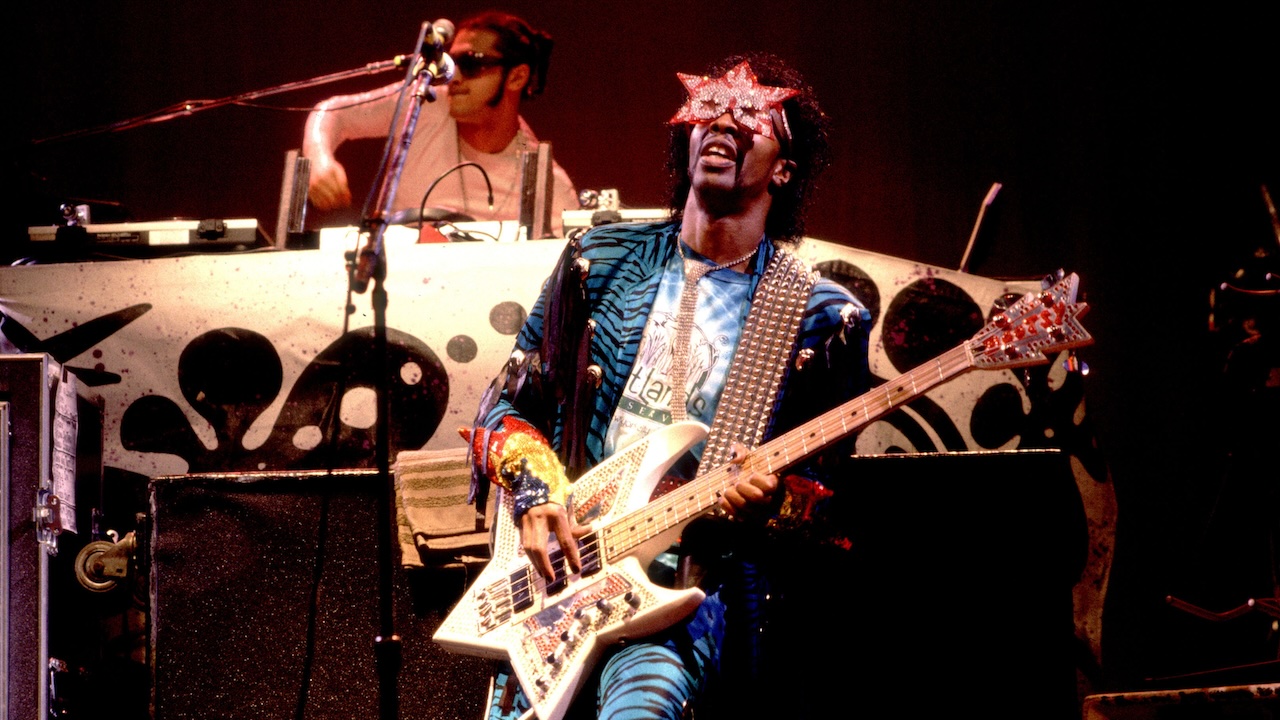Larry Graham on when you really need to use a 5-string bass
The godfather of slap bass says “I actually love playing a 5-string for other artists, but not for live shows”

It would be fair to say that the majority of bass guitar greats have all used a 4-string for their entire career without ever touching a 5-string. “I guess there’s a place for five strings, but not in what I do,” Guns N’ Roses bassist Duff McKagan told us. “Four strings is gonna keep me busy for the rest of my life, you know?”
Some might well argue that four strings is all you need, but those people clearly haven't experienced the sheer joy of being able to hit those super low notes. Just ask Larry Graham, who’s thumb-thumping basslines once anchored the rhythm section with Sly & The Family Stone, expanding on the possibilities for bass players with his new-fangled slap-bass technique.
Despite rarely straying far from his 4-string Moon bass, nicknamed Sunshine, Graham also has a matching 5-string, Moonshine. “I actually love using a 5-string bass,” he says. “Not for live shows, but I've used it on records and playing with other artists like Prince or Chaka Khan."
"When I play live I’m on autopilot," he says. "My bass is just another extension of my body – but I’m not thinking about it. I’m thinking more of the crowd, entertaining, singing and doing a few moves here and there. If you add the 5th string, I would have to think more about what I’m doing, and then I’m not just focussed on entertaining. So it really depends on what hat I’m wearing.”
When Larry designed his Moon Jazz bass, what refinements did he incorporate into the design? “Mostly the DI clip, the forward-angled pickup and the original wireless setup,” he tells us. “When I first went to Moon, their representative showed me the different things they were capable of building. I had things in my head that I liked from Jazz Basses and MusicMan and G&L Basses, so I mixed up all of that, and that’s what we came up with.”

Okay, Larry – what was it actually like on the inside of Sly & the Family Stone? “It was like a ‘family affair’, really. We did a lot of the same things together. We bought motorcycles together. We had the tallest, the meanest, the fastest Harleys. We got into cars together. We had ’55 and ’57 Thunderbirds, real classics. It was like a family, and I think that carried over into the feel of the music and of the times.”

Visit larrygraham.com for more info. If you are thinking about getting yourself a 4-string or a 5-string bass guitar, check out our buyer’s guide.
All the latest guitar news, interviews, lessons, reviews, deals and more, direct to your inbox!

Nick Wells was the Editor of Bass Guitar magazine from 2009 to 2011, before making strides into the world of Artist Relations with Sheldon Dingwall and Dingwall Guitars. He's also the producer of bass-centric documentaries, Walking the Changes and Beneath the Bassline, as well as Production Manager and Artist Liaison for ScottsBassLessons. In his free time, you'll find him jumping around his bedroom to Kool & The Gang while hammering the life out of his P-Bass.

